How to get rid of squash vine borers – 5 ways to protect your vegetable garden
These expert tips will prevent these pests from ruining your homegrown crop
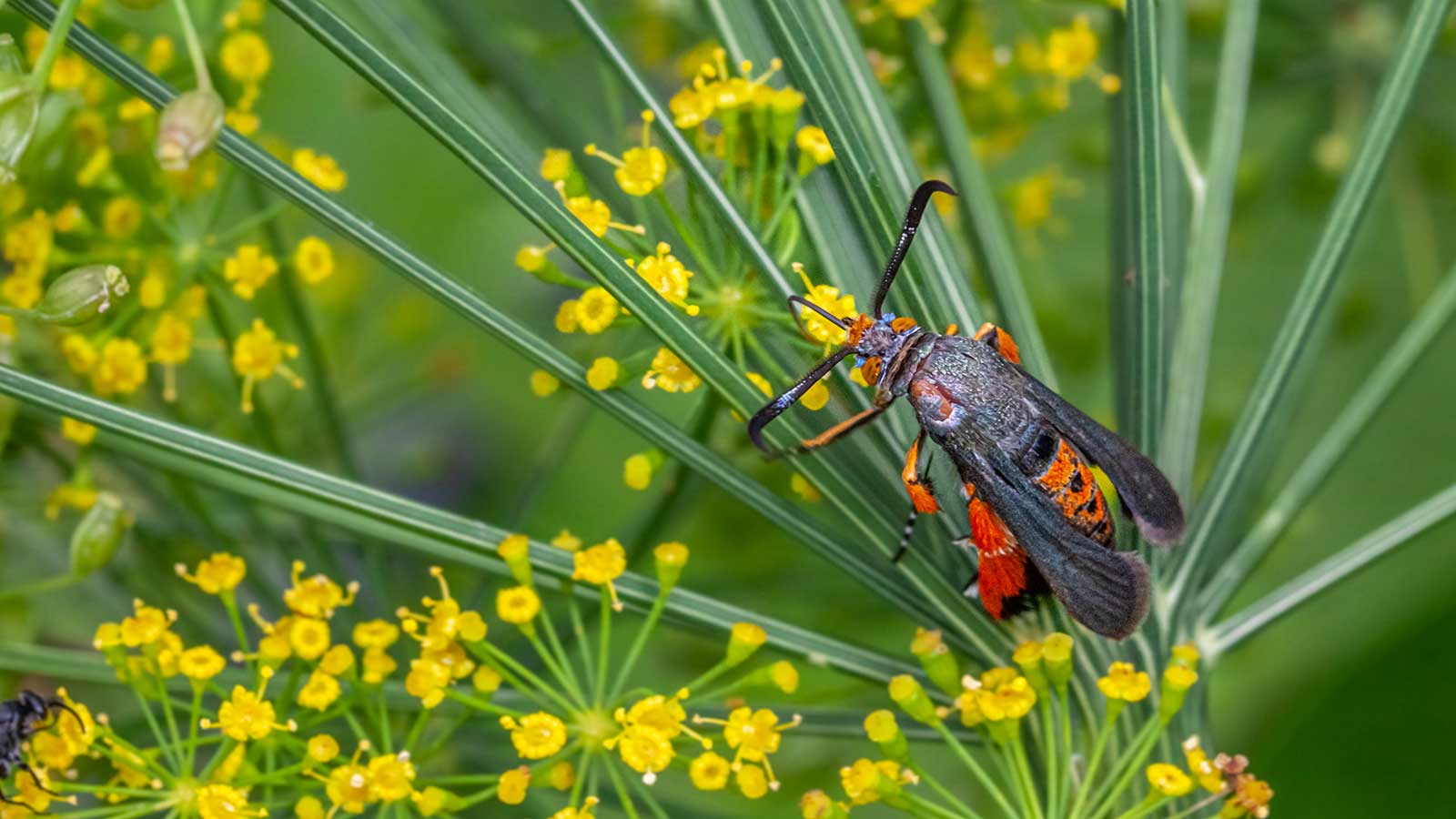

The squash vine borer is a pest to look out for if you're growing zucchini, pumpkin, or squash in your yard. While the colorful moths may look attractive, their larvae feed on the leaves and stems of these veggies, causing significant damage.
Luckily, as with many pests, slugs included, there are ways to tackle these interlopers – many of which are chemical-free.
'The first step is to recognize the signs of a squash vine borer infestation,' says Alex Hale David, the Co-Founder of Pest Control Weekly. 'If your plants start wilting or turning yellow, or you see frass (sawdust-like excrement) near the base of your plants, you may have a problem.'
Once you spot it, don't despair. Try these expert-approved solutions and you may be able to save your crop – and prevent future infestations.

Alex Hale David is the Co-Founder and Editor in Chief of Pest Control Weekly. By hobby, he's a gardener and has experience dealing with all types of pests found in backyards, with both natural methods and pesticides.
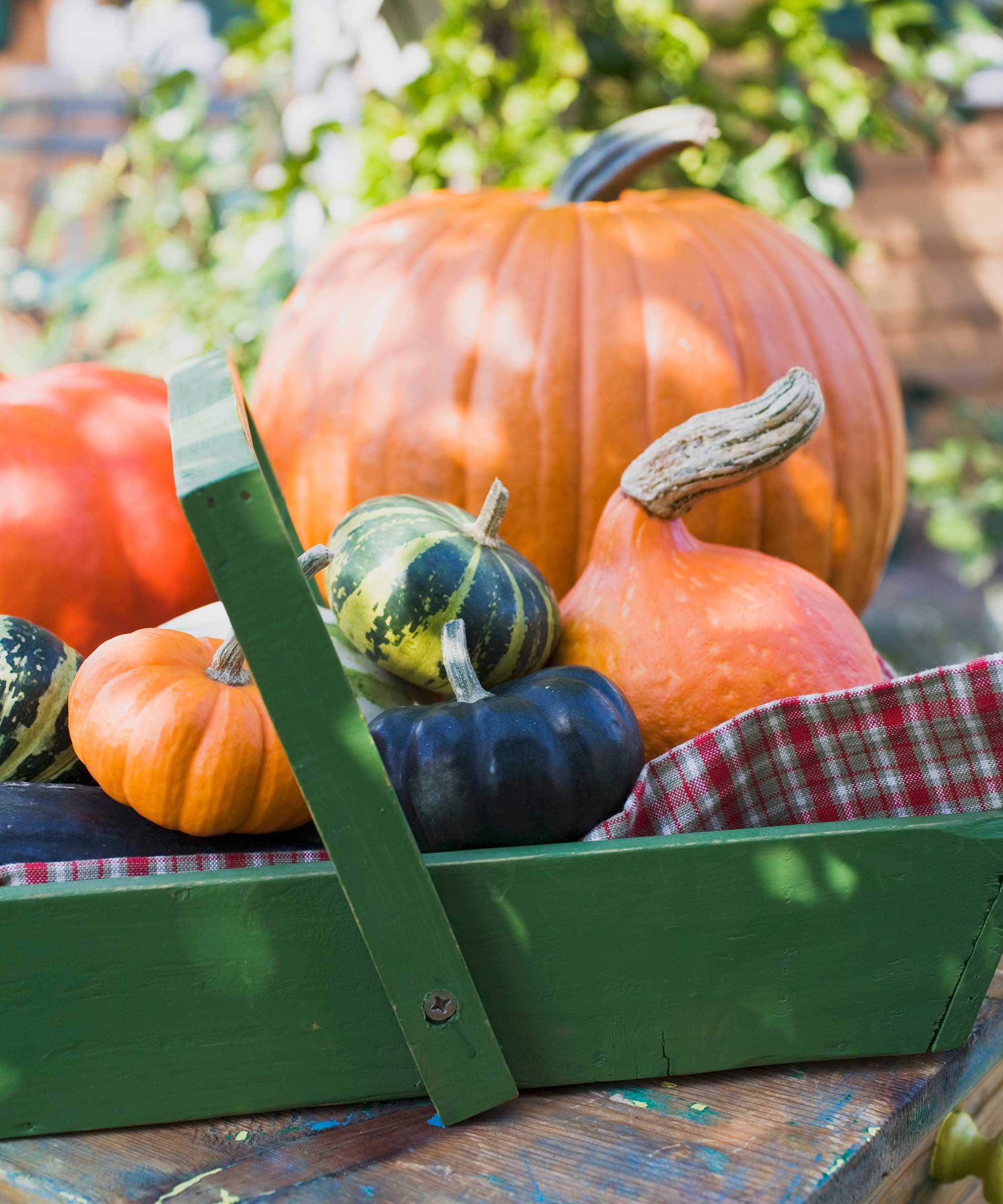
Enjoy a prolific squash harvest by avoiding these pests
5 ways to tackle squash vine borers in your garden
Try these tips in your vegetable garden for a healthy harvest.
1. Manually remove the grubs
'Manual control can be effective,' says Tony O'Neill, a gardening expert. 'Watch for signs of damage, such as wilting leaves, then slit the stem lengthwise where the borer entered and manually remove the pest.' Bury the damaged stem area in the soil after removal to promote re-rooting, he adds.
Alternatively, if you have a severe infestation, you can simply cut off any affected vines at the soil level and dispose of them, says Lindsey Hyland of Urban Organic Yield.
Design expertise in your inbox – from inspiring decorating ideas and beautiful celebrity homes to practical gardening advice and shopping round-ups.
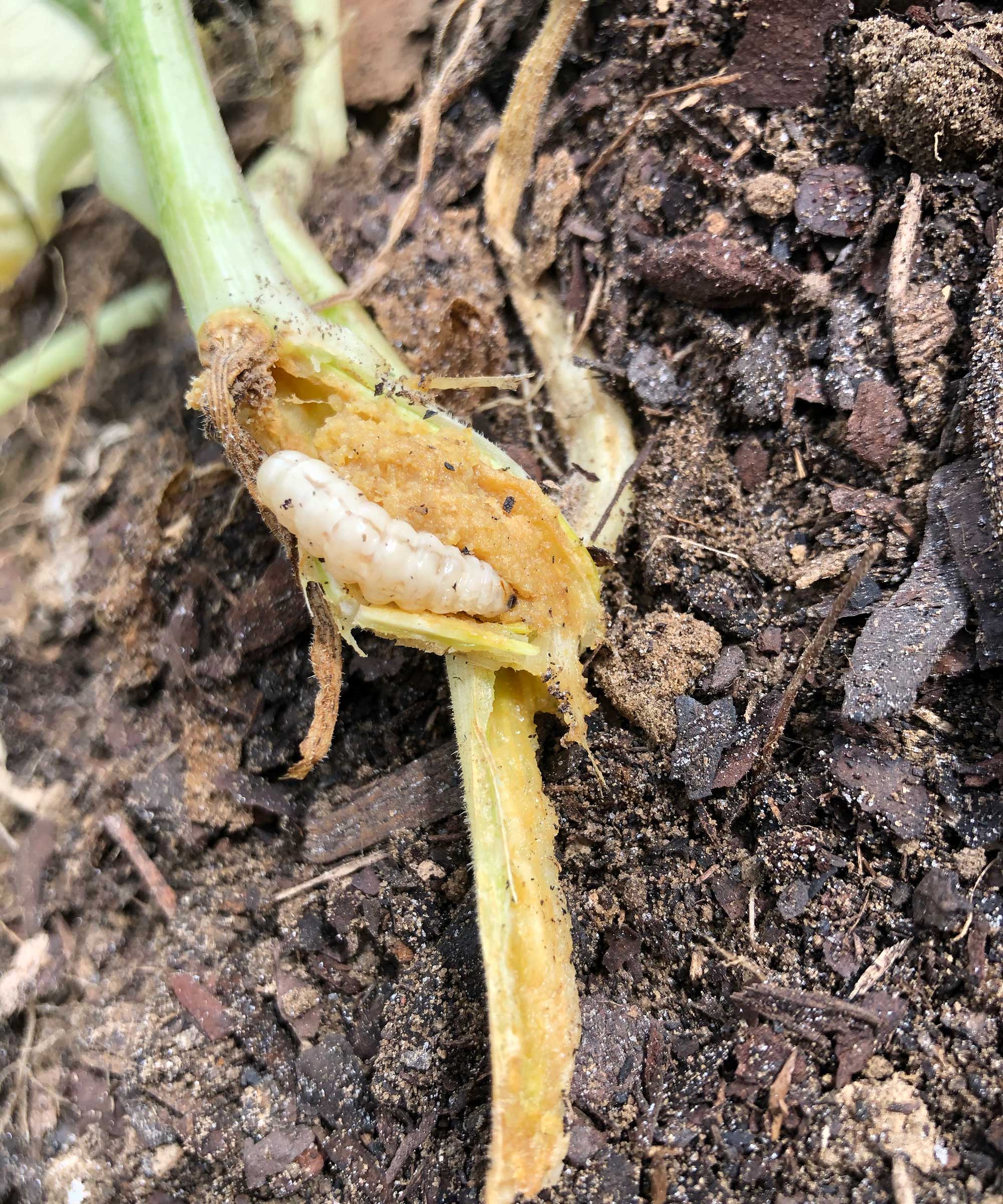
Squash vine borer larvae are cream-colored and can grow to around one inch in length
2. Introduce beneficial insects to your yard
Introducing natural predators like parasitic wasps can be an effective, eco-friendly alternative to using chemical pesticides, says pest-control expert Bill Swank. Alex agrees: 'These insects prey on the eggs and larvae of the squash vine borer, helping to control the population.'
You can shop them online, or in some garden centers. These predators can also be effective at tackling aphids.

Bill is the Founder of PestSource – a comprehensive hub for all things pest control. Not only this, but Bill is also a seasoned exterminator with over 30 years of experience in the field.
3. Use an organic insecticide
'Using organic pesticides like Bacillus thuringiensis (Bt) is another viable solution,' says Tony. You can apply it as a foliar and stem spray if the eggs haven't hatched yet. Timing is important with this method, as once the larvae have entered the stems, the spray won't be effective.
Be mindful that Bt can also harm the larvae of butterflies, so apply it carefully, away from butterfly host plants.
Bonide BT Thuricide Spray can be bought from Amazon.
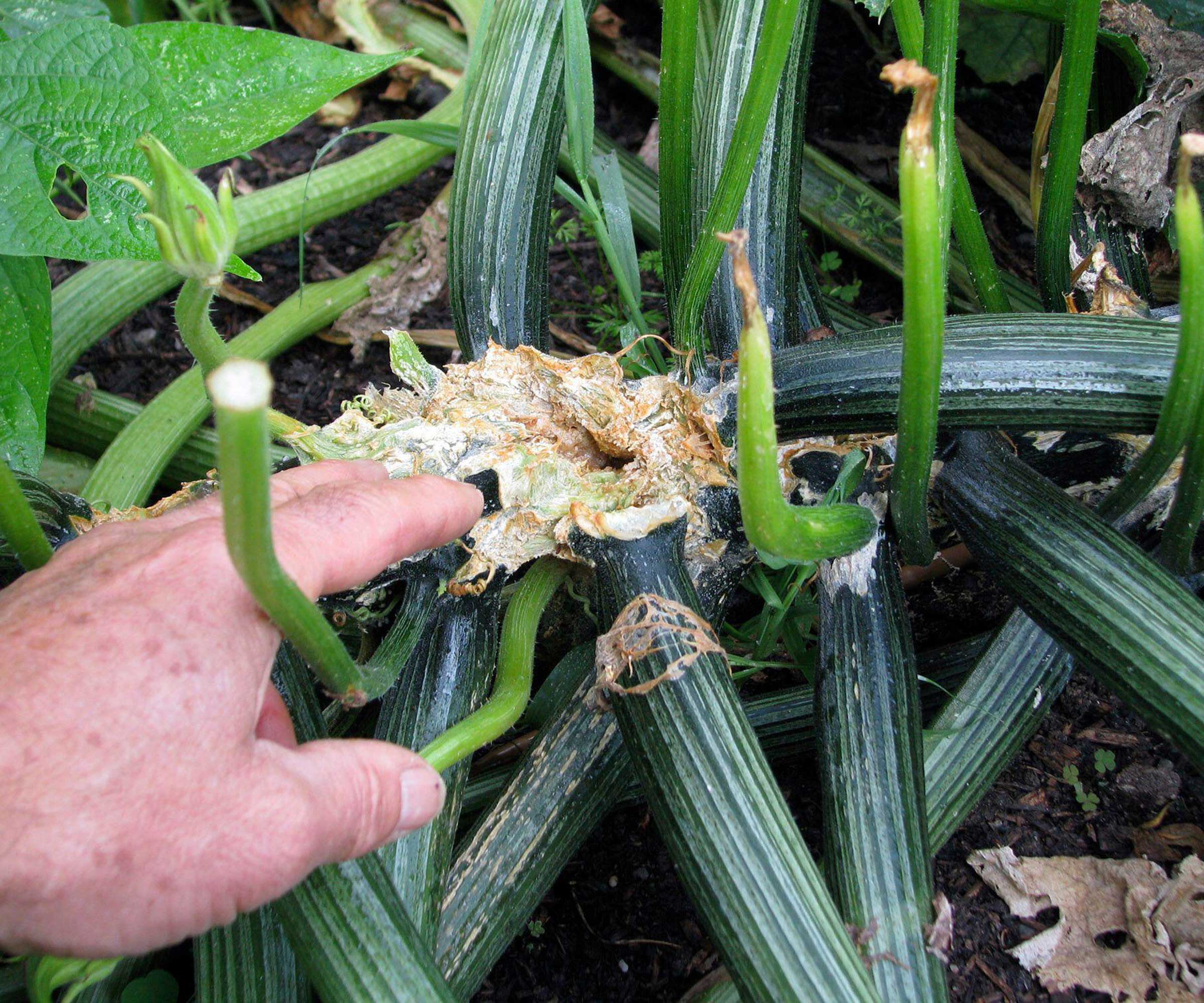
These pests cause noticeable damage as they burrow into stems
4. Apply beneficial nematodes as a preventative measure
Once the squash vine borer larvae have feasted on plants for around a month, they bury themselves into the top layer of soil, where they spend the winter in cocoons. The moths then emerge the following year, when temperatures rise.
This means that beneficial nematodes – another natural predator – can be an effective way to target any overwintering pests. Simply mix the nematodes with water to create a soil drench (follow the packet instructions).
They're a good option if you prefer organic gardening methods. Beneficial nematodes are also useful for tackling many other plant pests, including lawn grubs and thrips.
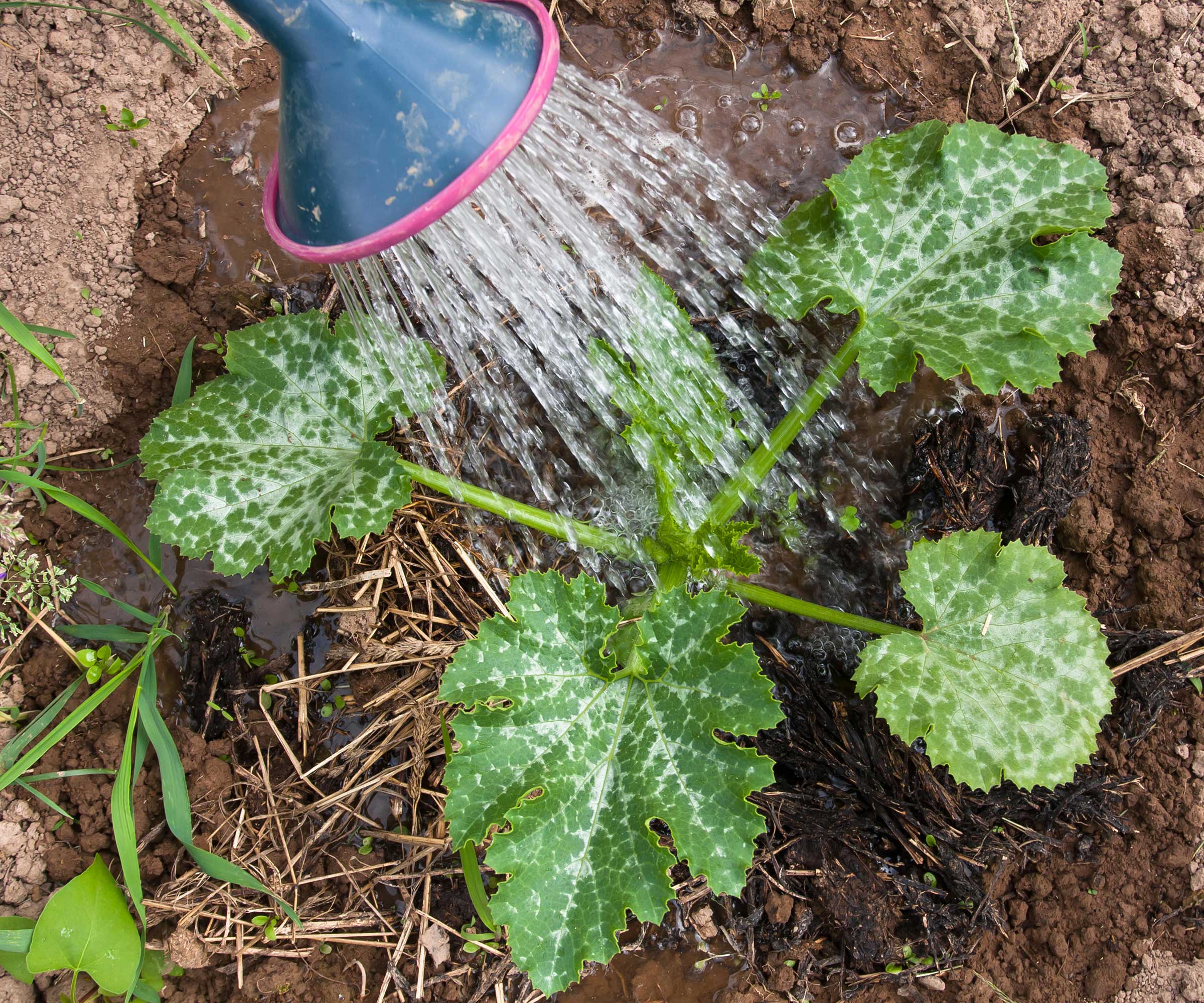
Apply beneficial nematodes when planting new squash to eradicate any squash vine borers in the soil
5. Cover young crops
Floating row covers are lightweight blankets for your plants, and they can be a very effective tool to prevent these bugs from laying eggs on your crops, says Alex. 'You can cover your squash plants with these from the time of planting until flowering begins.
'Remember, you'll need to remove them when plants start to flower so that pollinators can reach the plants.'
You can shop Agribon crop covers from Amazon, which are well-rated. Combine them with hoops to keep them off the leaves, which improves airflow and reduces the risk of powdery mildew.
You can also buy zipped covers (see below), that are well-suited to vegetables in containers.
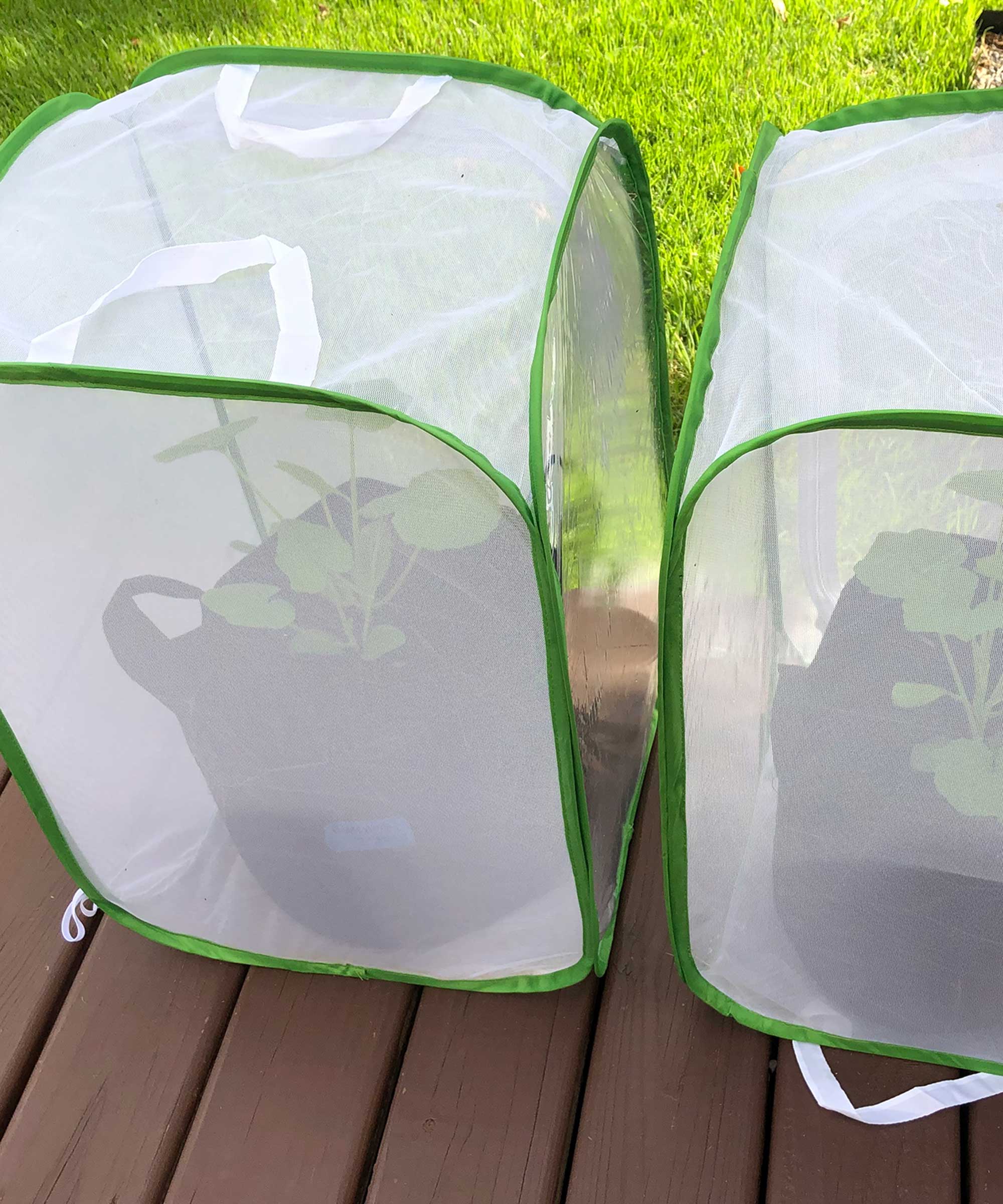
Individual covers are a good choice for potted squash plants
FAQs
Are there varieties of squash that are resistant to squash vine borers?
Some types of squash are less susceptible to attack from squash vine borers. These are generally those in the Cucurbita moschata family, which have denser stems, including butternut squash and tromboncino.
'A multi-faceted approach is often the best to effectively deal with squash vine borers,' says Tony – so try combining the tips above. And, as with any plant pest (or plant disease), action should be taken quickly should an infestation arise. So, keep checking your crops regularly throughout the summer for signs of issues, such as squash leaves turning yellow, to avoid these interlopers taking over – that way, you'll be able to enjoy delicious veggies for weeks on end.

Holly started writing about gardening five years ago, and she is a regular contributor to Homes & Gardens. She has also written many gardening features for Woman & Home and Real Homes, too. She has previous experience as a professional gardener, where she helped to plant and maintain private gardens. Holly has also looked after allotment plots over the years and loves to grow her own flowers and veggies from seed. In her spare time, she enjoys visiting local gardens, botanical drawing, and tending to her ever-growing collection of houseplants.